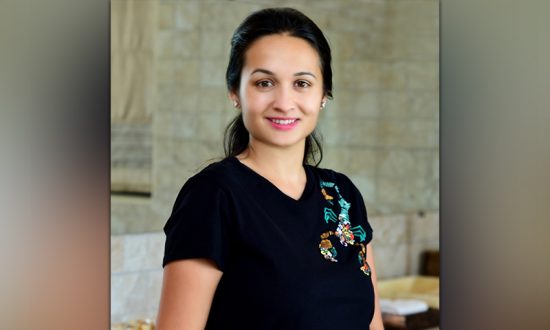An educationalist and an active social worker, Chitralekha is passionate towards giving back to the society and strives toward the empowerment of Rural India. She is driven by the motive of enabling individuals at the grassroots levels – Be it in terms of education, arts and culture, politics, sports, or media; she efficiently juggles multiple roles to create a positive and lasting impact. Managing Trustee at the non-governmental organization – Centre for Transforming India, Chitralekha is also a Director at the PNP Group of companies, the Secretary (Trustee) at the Prabhakar Patil Education Society, Alibag; and the Owner and Managing Director at Nagesh Publishers Pvt. Ltd. (Publishers of the leading Marathi Daily Newspaper ‘Krushival’; amongst the diverse set of responsibilities that she gracefully manages.
Our educational systems have had to undergo an unprecedented revamp in the last one year. When the pandemic struck, most schools were almost finishing up with the academic year. But with the panic spreading fast, schools had to physically shut down. Post that, the choice that remained was either to keep schools shut and deprive students of their education, or to adapt to the changing times and find a solution to keep things going.
A report by UNESCO states that last year, around 1.6 billion learners across 194 countries and about 100 million school personnel (including teachers) were affected due to school closures.
Having to drop out of school mid-way through the education trajectory not only creates a gap in learning, but also puts a strain on the mental and emotional wellbeing of children, while also changing the course of their development in their formative years. It can increase the risk of being forced into child labour and resorting to vices that would prove hazardous not just for the children themselves, but also for their families and society. Such an interruption in childhood education could potentially jeopardize our country’s future.
Digital literacy for the uninitiated
Switching from traditional classrooms in a limited span of time was a challenge. The situation demanded that all policy makers, education authorities, school principals, as well as teachers and parents, unite to find an alternative solution. One that was agile enough to accommodate remote learning, while also enabling widespread access and outreach. The decisions weren’t easy, not just for school authorities but also for government bodies across, both central and at the state level. However, they were necessary for the safety and security of entire populations. This also meant that teachers had to be trained in order to conduct classes via a new medium.
Technology indeed emerged as a hero. With digital schooling came flexible systems, a wider range of subjects and courses, and reduced time spent on commuting. There was ease of access as well as the option of learning and accessing information in vernacular languages.
Moving classrooms online allowed for vast exposure and an enhanced medium of learning, beyond four walls. From accessing multiple educational programs through videos and podcasts, to facilitating interactions and building a sustainable momentum for the long term, digital schooling initially entered as a trend, but soon emerged to be a necessity.
One nation, one education
Our country’s demographics are diverse. Due to lack of resources and financial constraints, certain pockets of students are still unable to access the internet or cannot afford an electronic gadget to support their education.
‘Only 20% of students residing in rural Maharashtra have access to smartphones’ stated The Hindu in a 2020 report.
During these tough times, various NGOs pan India have taken the initiative to help out the needy, in their own capacity. Making efforts to bridge the digital need gap in education, Maharashtra based non-governmental organization – Centre for Transforming India (CFTI) aims at distributing more than a thousand tabs to children in the slums of Dharavi through its School on Tab initiative. Currently, in its phase one, CFTI has already planned the distribution of 300 tabs and aims to mitigate the ongoing educational disruption with continuous efforts.
Similarly, various corporates and MNC’s are also stepping forward to support noble causes as a part of their CSR activities. Local authorities as well as the youth of our country are volunteering with their time to further amplify digital schooling alongside digital literacy amidst marginalized communities.
The need of the hour is to continue working towards bridge the digital divide and be future-ready. If we all combine our efforts and channelize our resources in the right direction, a lot more children will be able to access digital education and survive this disruption. Online schooling is the need of the hour to ensure that these kids do not forgo their Right to Education.




